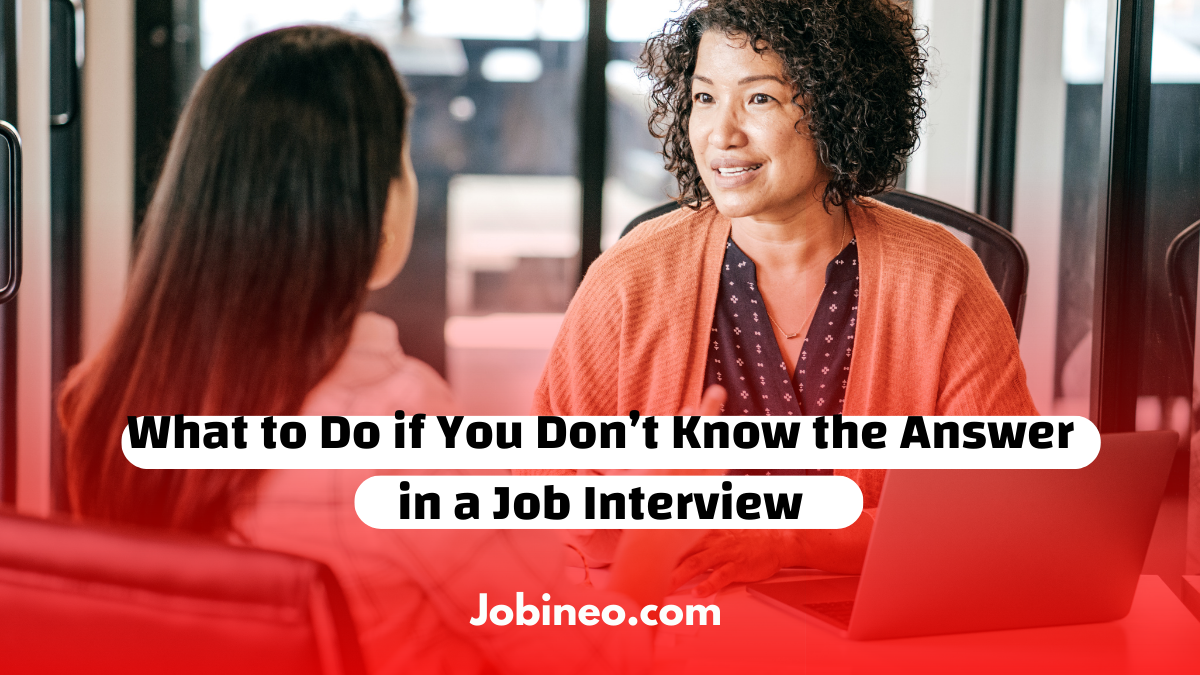What to Do if You Don’t Know the Answer in a Job Interview (Stay Calm & Shine!)

You’re cruising through an interview, feeling good. Every question so far feels manageable, like you’ve got it under control. Then suddenly, the interviewer leans in and drops something that sounds like it’s in another language.
Your stomach sinks. Your mind races. You’re thinking, what even was that question?
If you’ve ever been there, you’re not alone. It happens to almost everyone at some point. And the truth is, stumbling on a tough or unexpected question doesn’t mean you’ve ruined the interview. In fact, how you handle that moment can actually work in your favor.
Why Getting Stuck Isn’t Always Bad
Let’s shift perspective for a second. Freezing for a moment isn’t a failure. It’s a chance to show something even more valuable than perfect knowledge: the ability to stay calm, think clearly, and keep moving forward when things don’t go as planned.
Companies aren’t just looking for people with all the answers. They’re looking for people who can figure things out. People who stay steady under pressure and approach the unknown with curiosity.
So if you hit a wall in an interview, don’t panic. You can turn that moment into an opportunity.
A Simple Way to Respond When You’re Stuck
When your brain goes blank, here’s a practical way to reset and respond.
Pause and breathe. A short pause can make you look thoughtful instead of unprepared.
Acknowledge honestly. Saying something like, that’s not an area I’ve worked with yet, builds trust instead of doubt.
Bridge the gap. Share something related you do know, and show how it connects.
Turn it into a conversation. Ask a question back, inviting them to explain how their team approaches it. This shows you’re engaged and curious.
Instead of silence or panic, you’re opening a dialogue.
Natural Responses That Work
Here are a few ways to handle different types of tricky questions.
The technical question. You might say, I haven’t worked directly with that tool, but I do have experience with similar systems. I’d love to hear how your team uses it.
The regulation question. You could respond, I’m not familiar with that exact rule, but I understand how important compliance is in this industry. How does it impact your day-to-day work?
The strategy question. Try something like, I haven’t led international projects yet, but I have managed growth in local markets. I imagine many principles are similar, though cultural differences play a big role. What’s been your experience in expanding abroad?
Each response shows honesty, connects to what you do know, and keeps the conversation flowing.
Why Interviewers Ask These Questions
It’s not about tripping you up. Often, interviewers ask tough or unfamiliar questions to see how you handle pressure. They want to know if you can stay composed and resourceful when things aren’t clear-cut.
They’re testing adaptability, not perfection.
Turning Nerves Into Strength
Here’s the key: most candidates let these moments throw them off balance. The ones who stand out use them as a chance to show character. If you stay calm, acknowledge what you don’t know, and keep the conversation going, you come across as confident and teachable.
Final Takeaway
The next time you get stumped in an interview, remember this: it’s not about having every answer. It’s about showing that you can listen, adapt, and keep moving forward.








